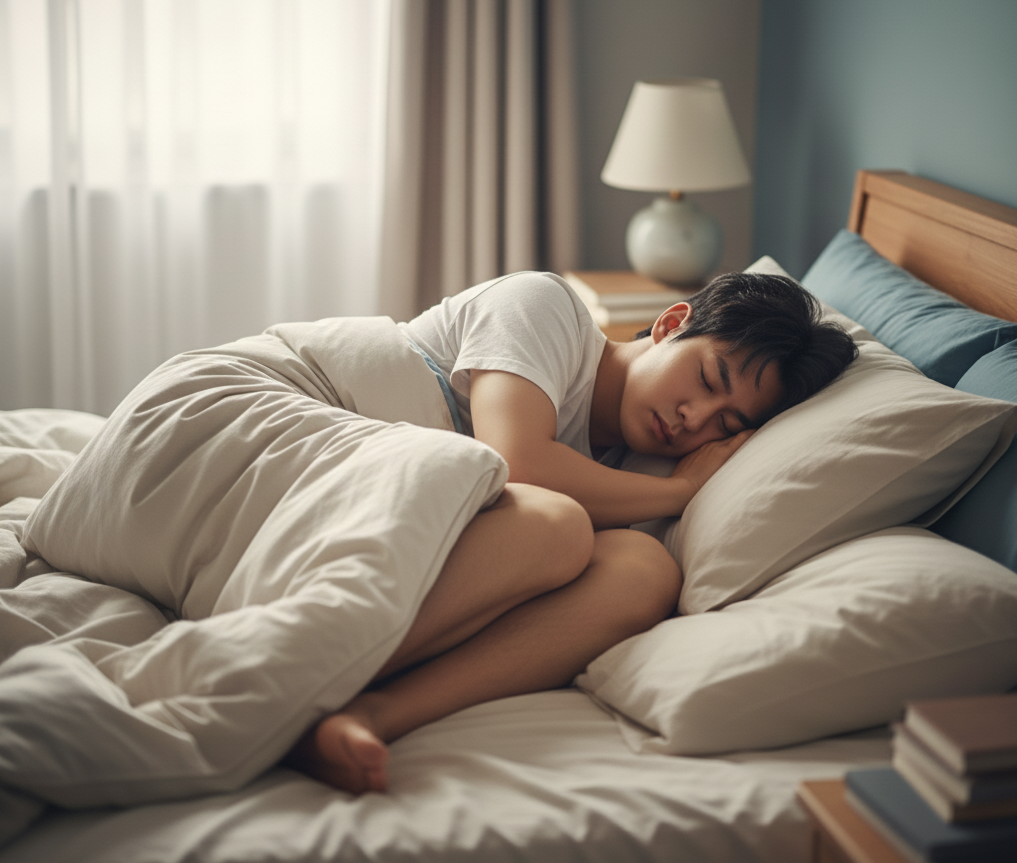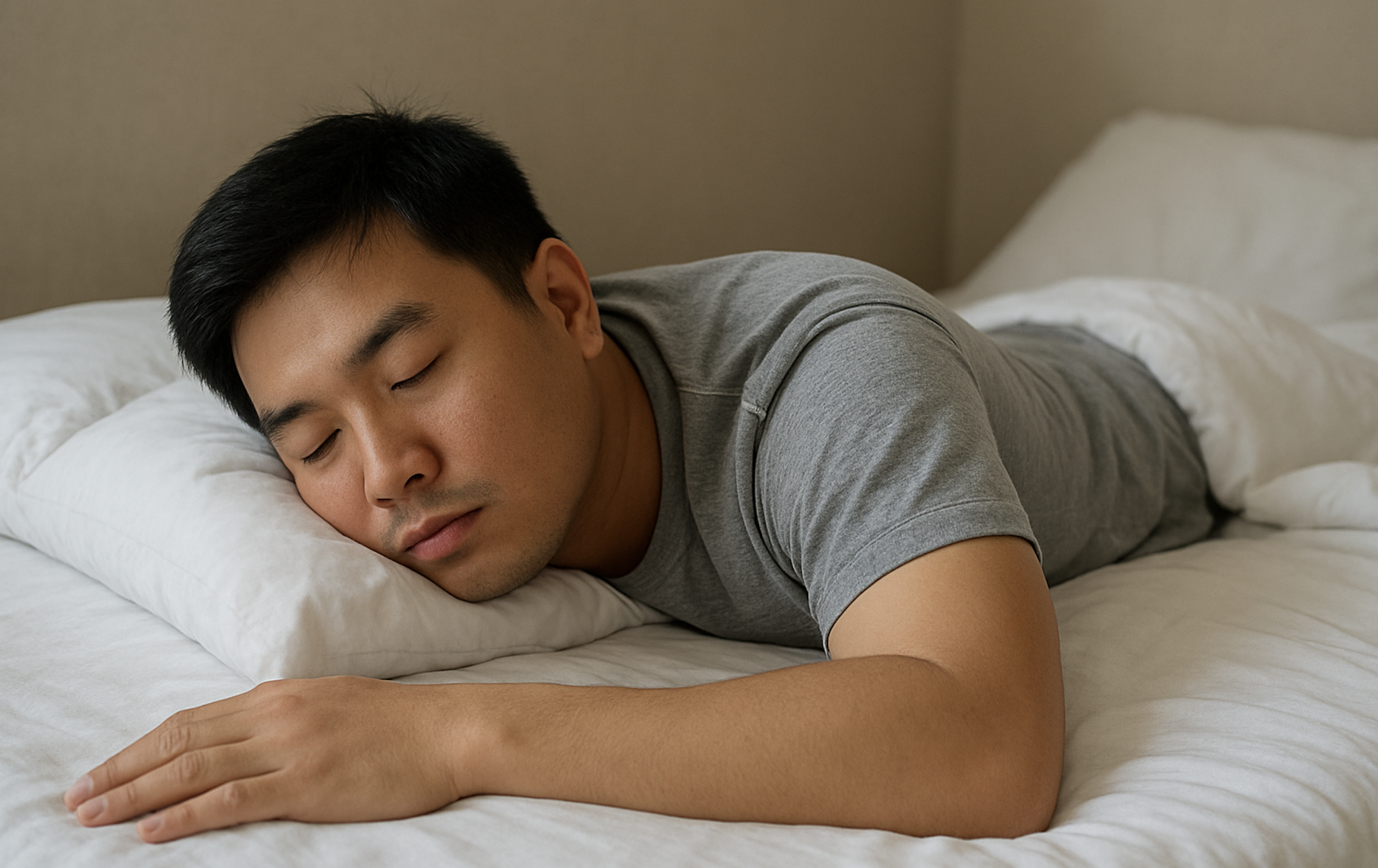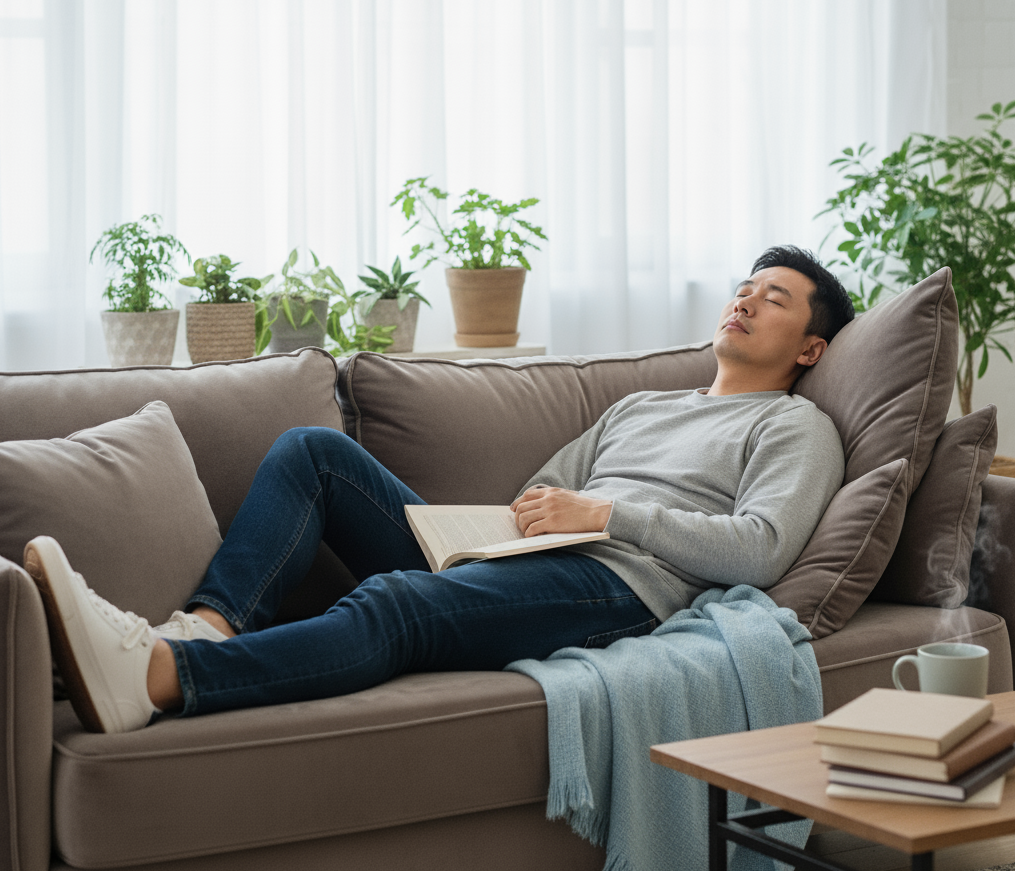Sleep is essential for the body to rest, recover, and regenerate energy. However, certain sleeping positions can cause respiratory problems like sleep apnea or worsen back and neck pain. Others can potentially harm bones, muscles, and nerves.
Sleeping in an unsuitable position can leave you waking up with aches, stiffness, or fatigue despite getting 6-7 hours of sleep each night. Here are 4 positions that may pose a risk to your body.
Fetal Position
The fetal position involves lying on your side with your knees drawn up towards your chest and your back curved, resembling the curled-up shape of a fetus in the womb. While this position can feel comfortable, it can cause several health problems over time. Continuously bending your knees and hips can cause discomfort and aches in these joints.
Curling your back can also strain your spine and tighten back muscles, leading to lower back pain and spinal misalignment. Neck muscles are also affected, as curling up puts pressure on the upper spine, causing numbness and pain. People with herniated discs should avoid this position, as it can exacerbate symptoms.
 |
The fetal sleeping position can easily cause discomfort and aches in the hips, back, and knees. Photo: AI |
Lying on Your Stomach
Sleeping on your stomach may seem comfortable for some, but it can negatively impact breathing. In particular, lying on your stomach with your head turned to one side twists your neck, straining neck muscles, which can cause persistent pain. This position also leads to unnatural spinal curvature, increasing the risk of back pain.
If you're accustomed to sleeping on your stomach, experts recommend placing a pillow under your chest or abdomen to reduce strain. However, this position shouldn't be maintained for long periods due to the risk of prolonged musculoskeletal strain.
 |
Prolonged sleeping on the stomach can negatively affect the spine. Photo: AI |
Reclining Position
In this half-sitting, half-lying position, the spine is often unnaturally bent, and the neck is slightly tilted forward. Over time, it increases pressure on the spine, causing shoulder and lower back pain, exacerbating chronic back problems, and affecting overall sleep quality. Slouching or hunching for extended periods in this position can also lead to swelling, numbness, and muscle fatigue, as the body isn't fully supported.
Making small adjustments like using support cushions or lying flat can significantly reduce pressure on the spine, improving posture and promoting a good night's sleep.
 |
The reclining position increases pressure on the spine, causing shoulder and lower back pain. Photo: AI |
Slumping Over a Desk
Slumping over a desk can put prolonged pressure on the radial nerve in the upper arm. The radial nerve is the largest nerve in the arm's plexus, involved in coordinating extension and supination. This prolonged compression can lead to a condition called wrist drop, temporarily impairing the ability to extend and flex the arm.
While this is usually temporary and can resolve within a few weeks, frequently slumping over a desk can cause significant discomfort and limit arm function during recovery.
 |
Slumping over a desk can put prolonged pressure on the radial nerve in the upper arm. Photo: AI |
The most suitable sleeping position is one that allows for sound, uninterrupted sleep without causing musculoskeletal pain. According to experts, lying on your back or side with proper pillow support can be beneficial. For example, placing a pillow under your knees or back (if lying on your back) or between your knees (when lying on your side) helps reduce strain. If you don't feel comfortable, change positions to maintain blood circulation and avoid pain. Choose a balanced mattress and pillows that reduce stress and are good for your spine. Keeping your bedroom dark, quiet, and comfortable also helps improve sleep.
Bao Bao (According to Times of India, Very Well Health)












